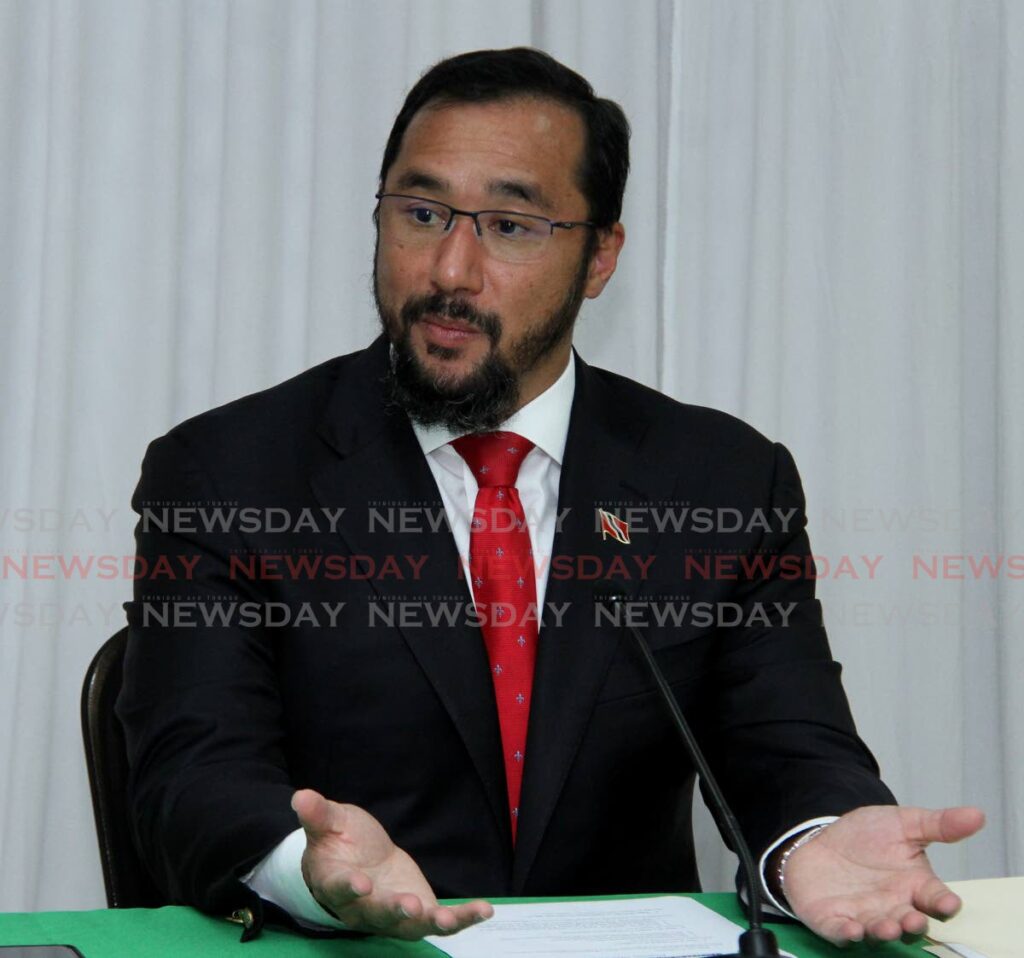Ryder Scott 2020 audit reveals decline in Trinidad and Tobago gas reserves

DESPITE volume increases in multiple fields, the 2020 Ryder Scott audit revealed on Tuesday that there was a decline in recoverable gas in TT.
The report, explained by Ryder Scott vice president Herman Acuna, revealed that 56 per cent of volume replacement in proven gas fields was achieved in 2020, as compared to 113 per cent in 2019.
Energy Minister Stuart Young, during a virtual presentation on the audit, said that proven reserves of 1.06 tcf were replaced by 0.6 tcf. This meant a decline of 10.7 tcf in 2019 to 10.2 tcf in 2020.
The decline occurred despite volume additions from the Angelin, Bele, Ginger and Parula fields. BPTT saw success in its Ginger exploration well from late 2019 to early 2020 and were added to the latest report.
Updated mapping in BHP’s Bele field, which was also discovered in 2019, added volume which now accounted for the majority of BHP’s reserves, according to Ryder Scott.
The performance of EOG’s Parula-10ST also resulted in "a positive revision" of volume in the Parula field. The figures for the fields were not disclosed during the presentation.
Acuna and Young attributed the decline in volumes to the covid19 pandemic and its impact on the oil and gas industry.
However, they said probable reserves showed a 5.4 per cent increase between 2019 and 2020. Exploration reserves rose from 2019 to 2020, by almost 10 per cent, because of leads and prospects identified by the ministry.
In January, when the last report was revealed, then minister of energy Franklin Khan noted that 2021 would have been a rough year, but with projects such as Matapal and those done by BHP would see increases in production from as early as the first quarter of 2022. Khan passed away in April and Young assumed responsibility for the ministry.
Young said an independent assessment of the Royston discovery by Touchstone in the Ortoire block, the remapping and revaluation of reserves of the Delaware and Bongo fields owned by BHP, and Shell’s Cassra and Orchid fields were scheduled for 2022.
“The outlook for natural gas is that there is a need for TT to continue to encourage exploration as well as appraisal and development drilling so that resources can be moved from the categories of higher risk to the lowest risked technically recoverable resources category,” Young said.
His outlook highlighted the necessity of the bid rounds to be conducted next year, the first of which was the deep-water bid round launched in Houston, Texas on December 5 and launched locally on Tuesday. The six-month bid round would involve 17 blocks located off the northern and eastern coasts of TT. Young said the total un-risked resources estimate (prospective resources of which there is no certainty that the resources will be discovered) of the blocks is about 18.1tcf.
“The blocks were selected based on the technical evaluation of their prospectivity by an internal evaluation team, nominations by stakeholders and the proximity to the successful BHP deep-water exploration campaign.”
“There is also a wealth of 2D and 3D seismic data acquired through multi-client arrangements and by upstream operators in our early deep-water initiative. This dataset, together with available well data, will aid in de-risking the blocks and thus identify the best suitable candidates for exploration.”
He said some key provisions in the deep-water sharing contract included a ring-fenced production sharing contract, recovery from costs incurred by oil companies from drilling wells and building infrastructure to obtain oil, and a requirement of the minister to pay taxes and royalties out of the government share of profit petroleum.
He said the the bid round has already gathered interest.
“I am hoping for the best but we will know in the next six months. You are seeing a rapid change in the global energy sector and the major players are being more restricted in where they invest.
“There is an appetite for the blocks but now that it has come out that is really the test,” Young said.

Comments
"Ryder Scott 2020 audit reveals decline in Trinidad and Tobago gas reserves"